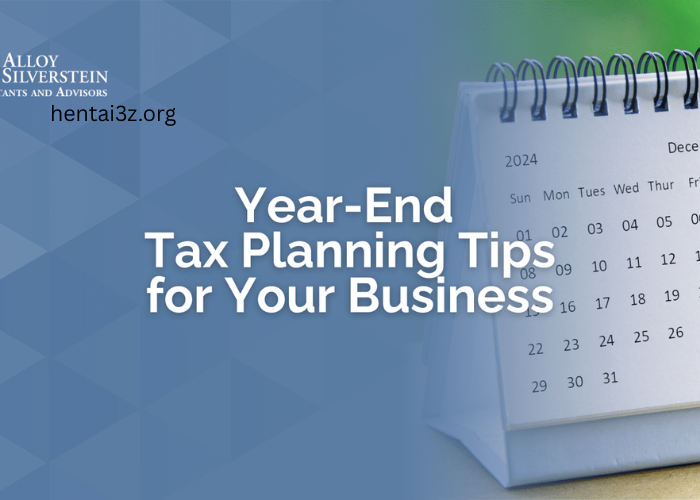In today’s fast-paced world, financial stability is a key component of a fulfilling life. However, achieving financial freedom often seems like a daunting task, especially in an economy where expenses seem to increase while income growth remains stagnant. The good news is that financial freedom is attainable for anyone who is willing to adopt disciplined habits, make informed decisions, and stay committed to a long-term plan. This guide will explore the essentials of mastering personal finance and offer actionable steps to help you achieve financial independence.
Understanding Financial Freedom
Financial freedom is not about having unlimited wealth but rather about having enough resources to live the life you want without worrying about how to pay your bills. It means having the freedom to make choices that allow you to enjoy your life without being overly concerned about financial constraints. This could involve traveling the world, retiring early, pursuing a passion project, or simply having the peace of mind that comes with financial security.
To achieve financial freedom, it is crucial to develop a clear understanding of your financial situation, including your income, expenses, debts, savings, and investments. This foundational knowledge will allow you to make informed decisions and create a realistic plan to reach your financial goals.
Assess Your Current Financial Situation
The first step towards mastering personal finance is to evaluate your current financial status. Start by calculating your net worth, which is the difference between your total assets (what you own) and your total liabilities (what you owe). This calculation will provide a snapshot of your financial health and help you understand where you stand financially.
Next, review your monthly income and expenses. Create a detailed budget that includes all sources of income, such as your salary, freelance work, and investments, as well as all expenses, including rent, utilities, groceries, transportation, and entertainment. By categorizing your spending, you can identify areas where you may be overspending and opportunities for saving.
Set Financial Goals
Setting clear, achievable financial goals is crucial for staying motivated and on track. Your goals should be specific, measurable, attainable, relevant, and time-bound (SMART). Examples of financial goals include paying off credit card debt within a year, saving for a down payment on a house, or building an emergency fund with six months’ worth of living expenses.
When setting your goals, consider both short-term and long-term objectives. Short-term goals could include creating a budget, reducing unnecessary expenses, or saving a specific amount each month. Long-term goals might involve saving for retirement, investing in a diversified portfolio, or achieving financial independence by a certain age.
Create a Budget and Stick to It
A budget is a powerful tool for managing your finances and achieving your financial goals. It helps you track your income and expenses, identify areas where you can cut costs, and ensure you are living within your means. To create an effective budget, start by listing all your income sources and fixed expenses, such as rent, utilities, and insurance premiums. Then, allocate funds for variable expenses, like groceries, transportation, and entertainment.
Once you have a budget in place, it is essential to stick to it. This requires discipline and regular monitoring of your spending. Consider using budgeting apps or spreadsheets to track your expenses and ensure you are staying within your budget limits. If you find that you are consistently overspending in certain categories, look for ways to cut back or adjust your budget accordingly.
Build an Emergency Fund
An emergency fund is a financial safety net that provides peace of mind and helps you avoid debt in the event of unexpected expenses, such as medical bills, car repairs, or job loss. Financial experts typically recommend saving three to six months’ worth of living expenses in an easily accessible account, such as a savings account or money market fund.
Building an emergency fund should be a priority, even if it means temporarily reducing your spending or cutting back on discretionary expenses. Start by setting aside a small amount each month, and gradually increase your savings as your financial situation improves. Having an emergency fund will give you the confidence to handle unforeseen expenses without derailing your financial goals.
Pay Off High-Interest Debt
High-interest debt, such as credit card balances and payday loans, can be a significant barrier to financial freedom. These types of debt often carry high-interest rates, making it difficult to pay off the principal balance and causing your debt to snowball over time. To achieve financial independence, it is essential to prioritize paying off high-interest debt as quickly as possible.
Consider using the debt avalanche or debt snowball method to tackle your debt. The debt avalanche method involves paying off your highest-interest debt first, while the debt snowball method focuses on paying off your smallest debts first to build momentum and motivation. Choose the strategy that works best for you and commit to making consistent, above-minimum payments until your debt is eliminated.
Invest for the Future
Investing is a critical component of building wealth and achieving long-term financial goals. By investing your money wisely, you can grow your wealth over time and create multiple streams of income. Start by educating yourself about different types of investments, such as stocks, bonds, mutual funds, exchange-traded funds (ETFs), and real estate.
When building your investment portfolio, consider your risk tolerance, time horizon, and financial goals. Diversification is key to reducing risk and maximizing returns. Spread your investments across various asset classes and sectors to minimize the impact of market fluctuations on your portfolio. Additionally, consider investing in low-cost index funds or ETFs, which offer broad market exposure and lower fees compared to actively managed funds.
Plan for Retirement
Planning for retirement is a crucial aspect of personal finance. The earlier you start saving for retirement, the more time your money has to grow through the power of compound interest. Begin by determining how much money you will need to retire comfortably, considering factors such as your desired lifestyle, life expectancy, and inflation.
Contribute to retirement accounts, such as a 401(k), IRA, or Roth IRA, and take advantage of any employer matching contributions. Aim to increase your retirement savings rate over time, especially if you receive a raise or windfall. Regularly review your retirement plan and make adjustments as needed to stay on track to meet your retirement goals.
Protect Your Assets
Protecting your assets is an essential part of achieving financial freedom. This includes having adequate insurance coverage, such as health, auto, home, and life insurance, to protect against unexpected events that could jeopardize your financial security. Additionally, consider creating an estate plan, including a will and power of attorney, to ensure your assets are distributed according to your wishes in the event of your death or incapacitation.
Continuously Educate Yourself
Financial literacy is the foundation of sound financial decision-making. Continuously educating yourself about personal finance, investing, and money management can help you make informed decisions and stay on track to achieve your financial goals. Read books, attend workshops, follow reputable financial blogs, and consult with financial advisors to expand your knowledge and stay up-to-date with the latest financial trends and strategies.
Stay Committed and Adapt
Achieving financial freedom is a long-term journey that requires commitment, patience, and adaptability. Life circumstances can change, and it is essential to remain flexible and adjust your financial plan as needed. Regularly review your financial goals, budget, and investments to ensure they align with your current situation and long-term objectives.
Remember that setbacks are a natural part of the journey to financial independence. If you encounter financial challenges, stay focused on your goals, and don’t be afraid to seek professional advice or support from trusted friends and family. By staying committed and adaptable, you can overcome obstacles and continue progressing towards financial freedom.
Conclusion
Mastering personal finance is a lifelong journey that requires discipline, education, and a proactive approach. By assessing your current financial situation, setting clear goals, creating and sticking to a budget, building an emergency fund, paying off high-interest debt, investing for the future, planning for retirement, protecting your assets, and continuously educating yourself, you can achieve financial freedom and live the life you desire. Remember, financial independence is not about how much money you make, but how wisely you manage and grow your resources. Take control of your financial future today, and enjoy the peace of mind that comes with financial freedom.




